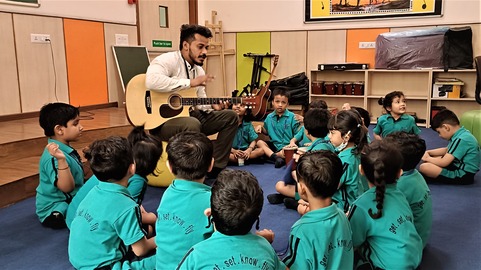Introduction
Math education holds a place of significant importance in Singapore’s rigorous academic environment. Known for its high standards and competitive curriculum, Singapore mathematics is a cornerstone of educational success in this island nation. This article delves into the crucial role parental involvement plays in enhancing math success, aiming to shed light on how active participation from parents can drive better outcomes for students. We will explore various facets of this involvement, supported by data and case studies, to understand its true impact.
The Role of Parental Involvement in Education
A. Definitions and Concepts
Parental involvement encompasses a range of activities, from helping with homework to attending school meetings and advocating for educational resources. It can be direct, such as engaging in school-related activities, indirect, such as creating a supportive home environment, or strategic, like participating in educational planning and decision-making.
B. Theoretical Frameworks
Several theories underpin the concept of parental involvement. For instance, the Epstein’s Framework of Six Types of Involvement outlines how schools and families can work together to enhance student success. Applying these theories to math education reveals that parents’ active participation can positively affect their children’s academic performance.
Current State of Parental Involvement in Singapore
A. Statistics and Trends
Recent studies indicate that parental involvement in Singapore is relatively high, with many parents actively participating in their children’s education. Surveys have shown that parents are frequently engaged in supporting their children’s math learning through various means, such as tutoring and extracurricular activities.
B. Cultural and Socioeconomic Factors
Cultural attitudes towards education in Singapore are highly favorable, with a strong emphasis on academic achievement. Socioeconomic factors also play a role, as families from higher income brackets often have more access to resources and support systems, influencing their level of involvement.
Impact of Parental Involvement on Math Success
A. Academic Performance
Numerous studies have established a clear correlation between parental involvement and improved math grades. Students whose parents actively participate in their education tend to achieve better results and demonstrate higher proficiency in math.
B. Student Attitudes and Motivation
Parental support significantly influences students’ interest in math. When parents are engaged, students often show increased motivation and confidence in their abilities, which can translate into better academic performance.
C. Classroom Behavior and Engagement
Students with involved parents are more likely to exhibit positive classroom behavior and greater engagement in math activities. Teachers often report that these students participate more actively and show a stronger commitment to their studies.
Case Studies and Examples
A. Successful Models of Parental Involvement
Singapore has implemented several successful programs that highlight the impact of parental involvement. Initiatives like the “Parent-Teacher Conferences” and “Math Workshops for Parents” have proven effective in fostering collaboration between families and schools, leading to noticeable improvements in student performance.
B. Comparative Analysis
Comparing Singapore’s approach with other countries reveals that while high levels of parental involvement are beneficial, the strategies and intensity of involvement can vary. Singapore’s model of structured and supportive parental engagement offers valuable lessons and best practices that other regions can adopt.
Challenges and Barriers
A. Common Obstacles
Despite the benefits, there are challenges to parental involvement. Time constraints, lack of resources, and communication barriers can hinder effective participation. Parents may struggle to balance their professional and personal lives with their involvement in their children’s education.
B. Strategies for Overcoming Challenges
Addressing these challenges requires targeted support systems. Schools can play a pivotal role by providing resources, organizing workshops, and fostering open communication channels to help parents overcome these barriers.
Recommendations for Enhancing Parental Involvement
A. Practical Tips for Parents
Parents can enhance their involvement by setting aside dedicated time for their children’s education, staying informed about the curriculum, and engaging in activities that support math learning at home. Utilizing educational resources and tools can also aid in this effort.
B. Policy Recommendations
Educational authorities should consider implementing policies that promote parental involvement, such as providing training programs for parents, creating flexible school schedules for meetings, and offering support services for families facing challenges.
Conclusion
In summary, parental involvement plays a crucial role in math success in Singapore. By actively participating in their children’s education, parents can significantly impact academic performance, student attitudes, and classroom behavior. Continued efforts to support and enhance parental engagement will contribute to sustained success in math education and beyond.



